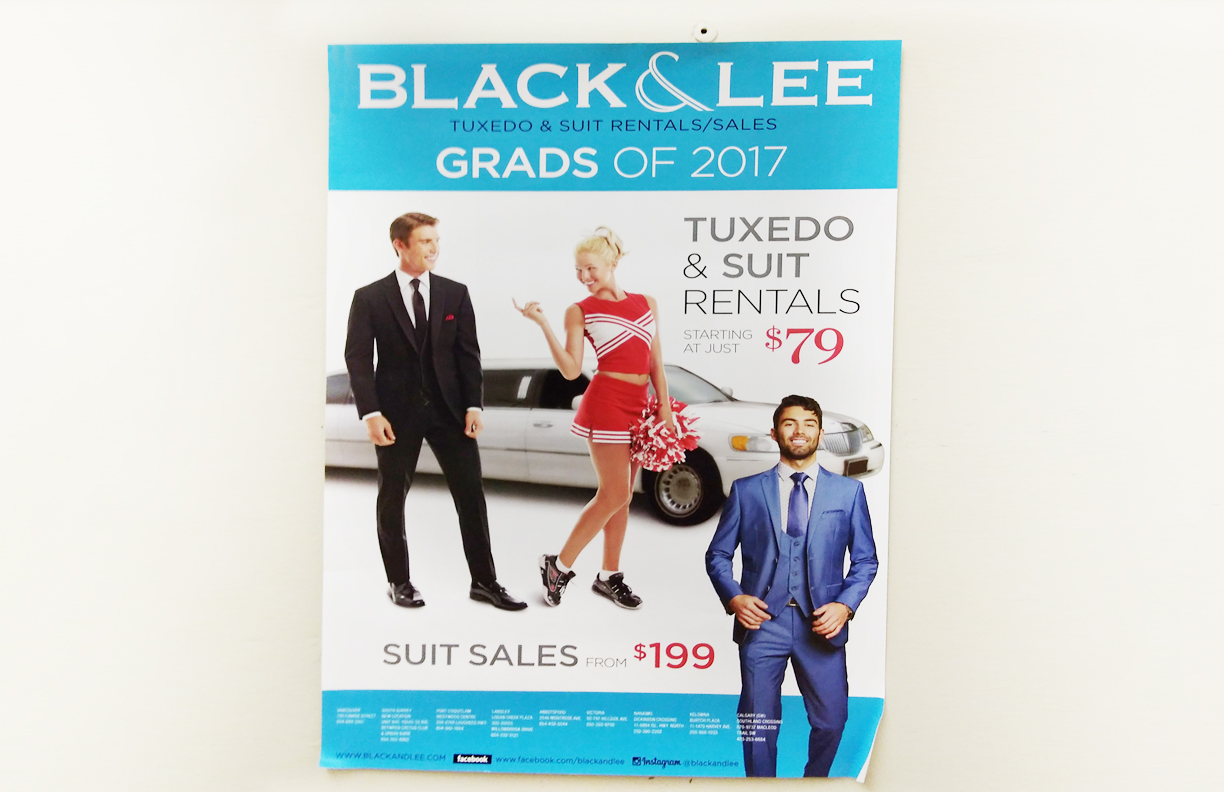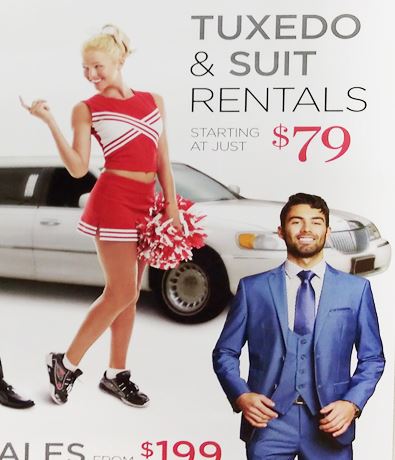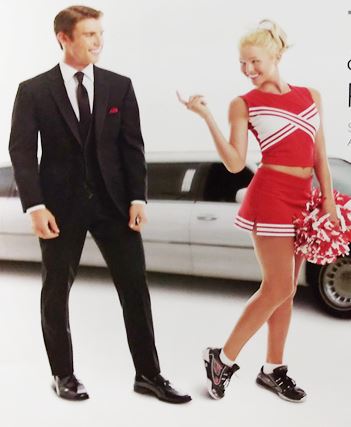
Remember when we talked about media literacy and how it helps you break through the noise of advertising?
We found this ad hanging in a local high school and thought it would be the perfect example of how you can question media.
At first glance, it looks like an innocent rental tux ad for the upcoming graduation season, but when you look at it with a critical eye and ask some probing questions it becomes clear there is a lot more going on.
When we see men and women portrayed in such confining gender roles, we can’t help but ask: what are they selling, really?
Get the suit, get the girl
This is a harmful message about the value of women as objects, rather than equal members of society.
For decades sex has been used to sell everything from cars to food to cleaning products, but recent evidence suggests growing understanding (and body of research) that using sex to sell something can negatively impact a company’s bottom line. As people become aware of the impacts of sexualization and objectification there is a growing resistance to the use of female bodies to sell products. Considering that this ad targets young people, it’s especially surprising that the out-dated concept “sex sells” was used.
Isn't she graduating too?
The next thing that we questioned was why they used a girl in a cheerleader suit as a prop or prize. If it really is an ad for graduation, shouldn’t she be portrayed as a graduate too? The suit–often a marker of power and success–lets us know right away that these young men are really going places!
The way she is shown, gesturing to the guy in a “come over here” kind of way, implies her highest ambition is to be a prop in the man’s successful life.
Narrow gender stereotypes, like the ones shown by the suit vs. cheerleader costume, reinforce stereotypes of men as powerful and women as subordinate; men as professionals, women as props.
In media, why is a woman’s power often linked to how she looks? Power and value should not be based on looks and social status. We’re worth more than that.
Media literacy means asking questions about media that go beyond skin deep. It helps you cut through the noise in advertising and uncover the messages that are hidden below the surface.




